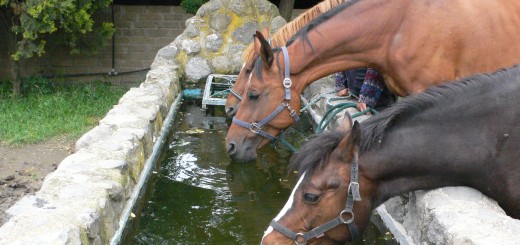What Max Did For Us

by Asher Brander
As of last Friday, no soldiers had fallen. Now we have 32 korbanos. Hashem Yerachem
In a trip that started out for us with chasunos, we and the whole country are busy with shivas and levayas – even as one can not fail to acknowledge the revealed miracles of this war, B’chasdei Hashem.
There are almost no words of machlokes to be heard. People are packing anything (energy bars, tissues and t-shirts) and everything to send to the soldiers. Tehillim is said across the spectrum. Chassidishe Rebbes are “holding tish” in Gaza.
By now, most have heard the story of Max Steinberg – a free-spirited young man who hesitatingly came to Israel in 2012 on Birthright with his siblings, was touched in a profoundly personal and deep way, decided that this was the country of his calling, fought to get into Golani and fought and died in Gaza on that bloody Sunday this past week where we lost 13 beautiful young men. On Wednesday, among tens of thousands, we attended his funeral.
One wonders: How does a secular young man with almost no Jewish education, who barely knew hebrew, merit to have a funeral with aza kavod acharon, numbers that none but the greatest in our nation have? How does a young man merit a Stairway to Heaven, to be koneh his olamo b’sh’a achas (cf. Avodah Zarah 17) – to paraphrase Rav Gustman Zt”l to be included in that very large minyan of kedoshim who died al kiddush defending Am Yisrael?
Was it from a Bubbe that cried 2 generations ago, from refined and good parents who had the wisdom to allow their son to follow his dreams or was it from the ud mutzal me’eish, the glowing ember – the pintele yid in every Jew? Probably all of the above. Nistarim Darche Hashem — but we were all touched at Max’s levaya in so many ways.
The Steinbergs, whose very first trip to Israel was to bury their son, simply could not grasp the enormity of the response – constantly expressing their gratitude amidst their pain. Nir Barkat, mayor of Yerushalayim – who spoke so movingly wondered aloud why so many people took off work, braved the heat and the crowds, traveled for hours and hours to escort a Jew they never knew and could not speak with.
My friend Rabbi Avraham Willig provides THE answer – an explanation that touches the core of our avodah during this saddest time of the year. Why 30K+ people came to say goodbye to Max Steinberg (and thousands more for the shiva visit) is NOT the question.
Why Max left a big beautiful home, pool, car and life from a beautiful neighborhood and climate (where 60 degrees (F) is cold weather) – to defend people he did not know, in a country he barely saw, for a people he could not functionally speak – now that is the great mystery.
However once Max infused such incredible ahavas chinam into his life and into am yisrael, and gave up his life mamash for those ideals – is it really any wonder why people who did not know him, who could not speak to him, (on the massive shiva line – an older israeli sepharadi bearded Jew who spoke no English desperately tried to communicate with the parents – the comedy was only outstripped by the poignancy) nor understand his cultural milieu came out in the tens of thousands to give kavod?
It is no mystery at all! It is rather, the essence of K’mayim hapanim lapanim, kein lev ha’adam la’adam (mishlei 27:19)- just as the water that so vividly reflects the face to the face – so does the heart of man reflect what he feels from the other.
A people whose hearts felt the pure, irrational and unbounded love of Max Steinberg, simply reflected back.
May that zechus of uniting a people serve him and us in great stead as we anticipate with aligned hearts the coming of Moshiach b’mheira b’yameinu.
Rabbi Asher Brander is the rav, founder and director of the LINK Kollel in Los Angeles




I think what has happened, is a reflection of the idea that all of us Jews really are one big family. We may not always get along with one another, but no family does. Meanwhile, wherever there are Jews suffering in our world, the rest of us Jews feel pain, just as any family member would feel such pain for his fellow family members, sometimes almost against our own will. I have noticed that this kind of family feeling does not exist among the other nations. Maybe that is because they are not family, identifying one another by ideology alone, which is not nearly as deep of a relationship as is the instinctive closeness that we feel for one’s extended Jewish family.